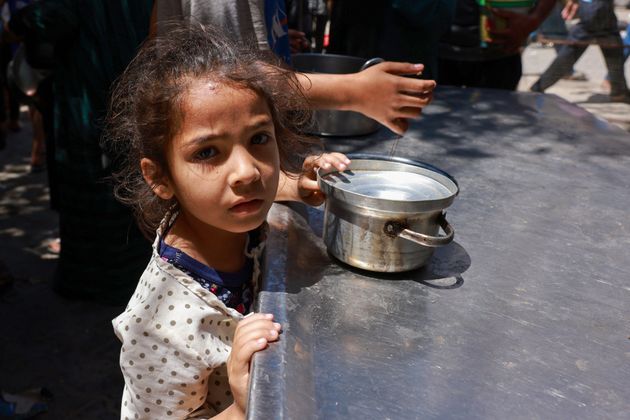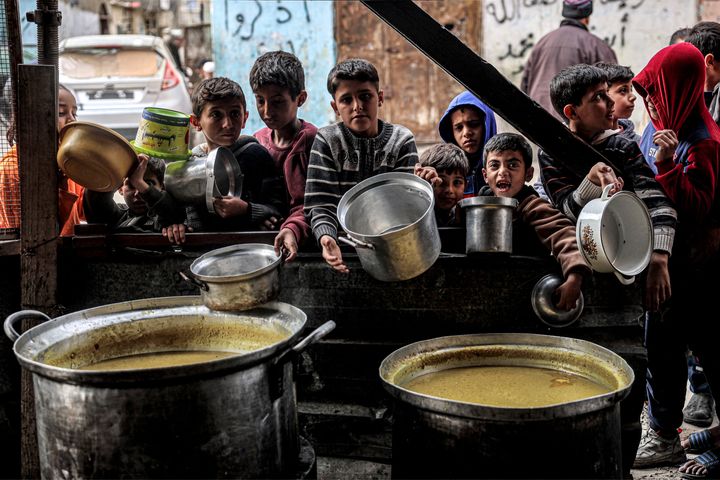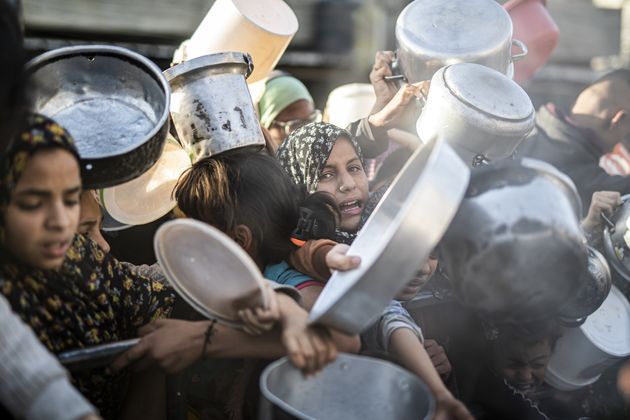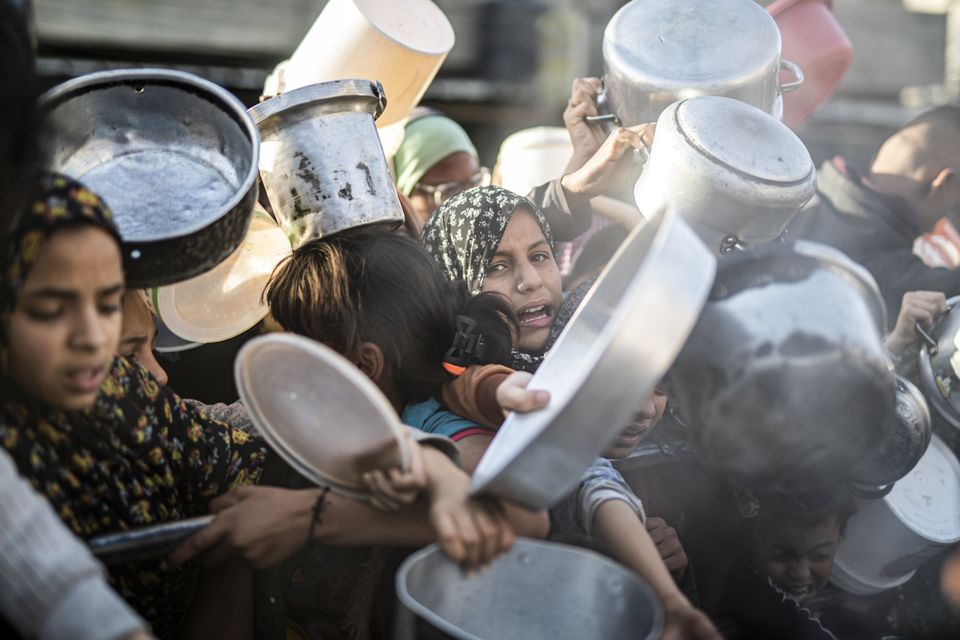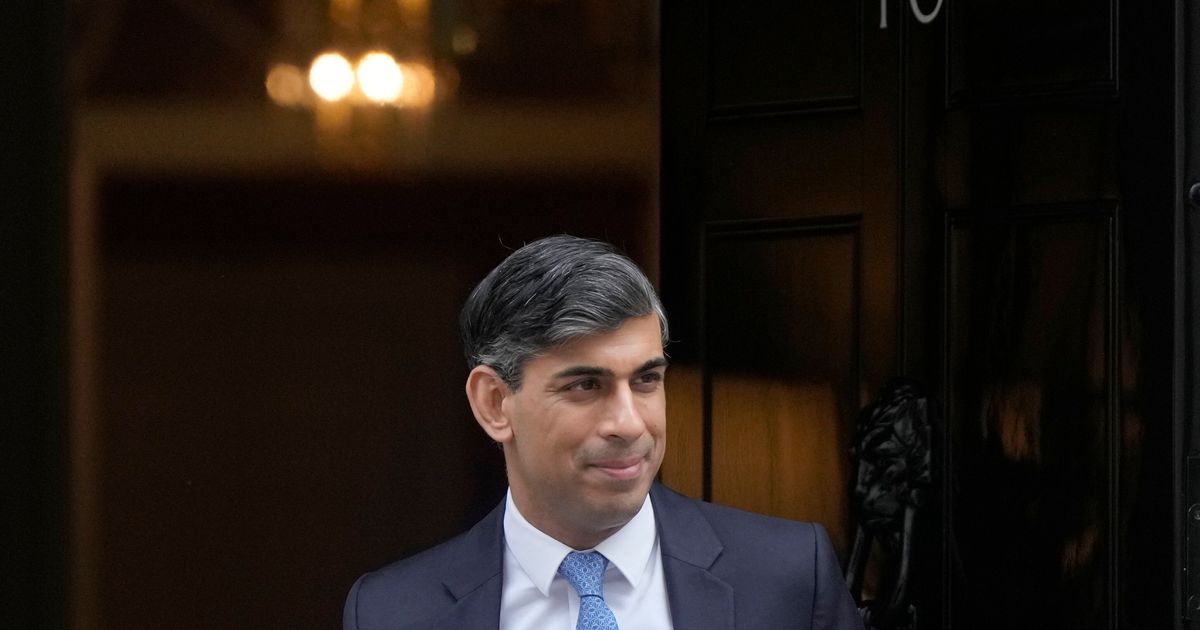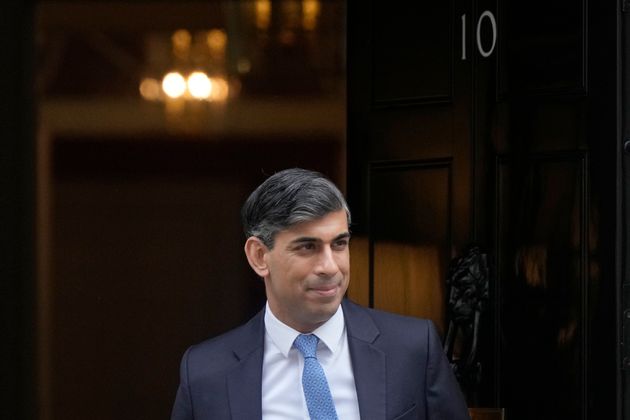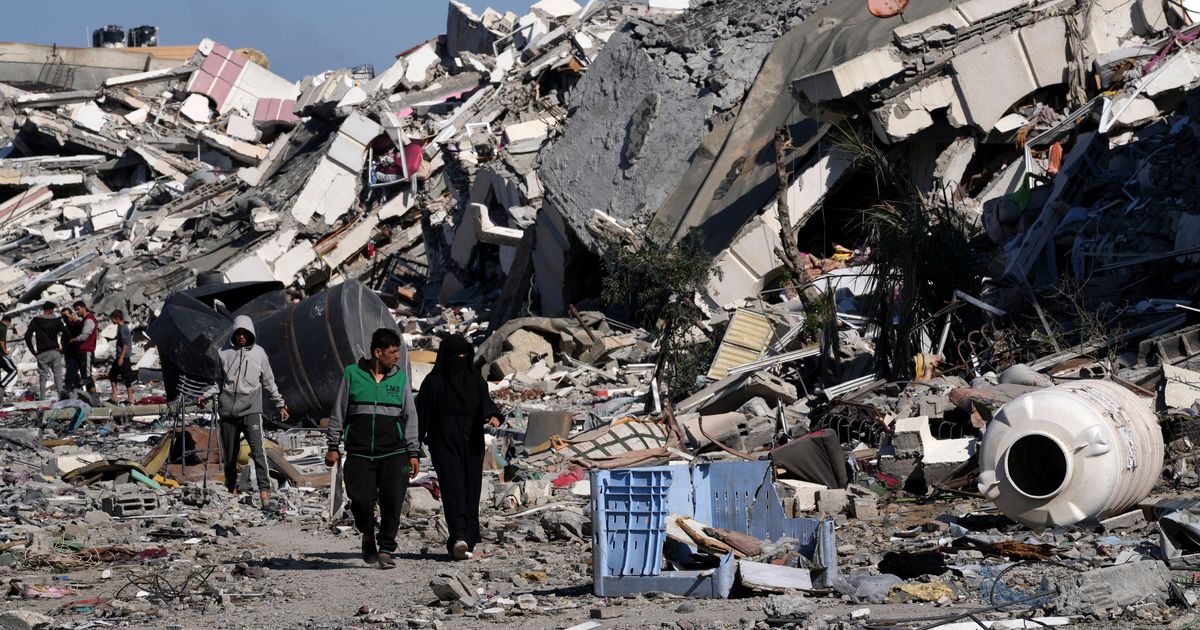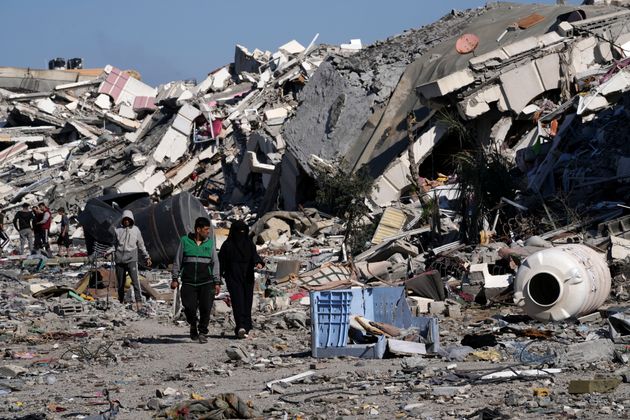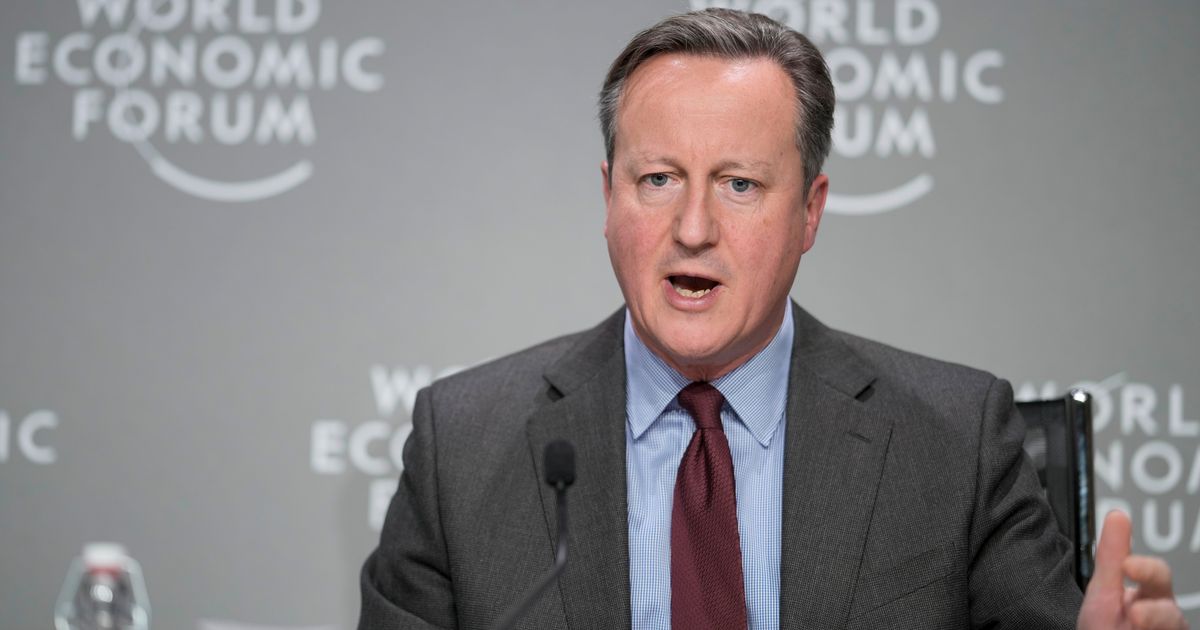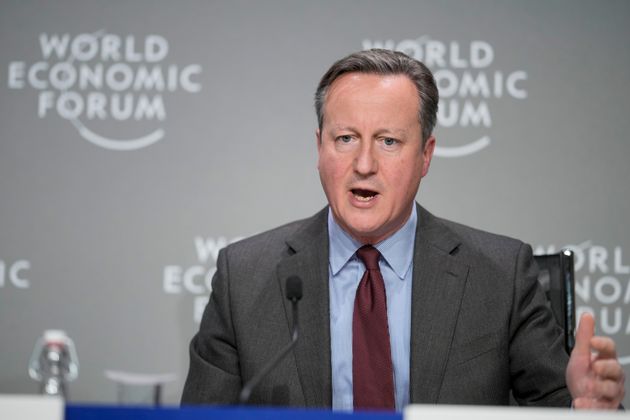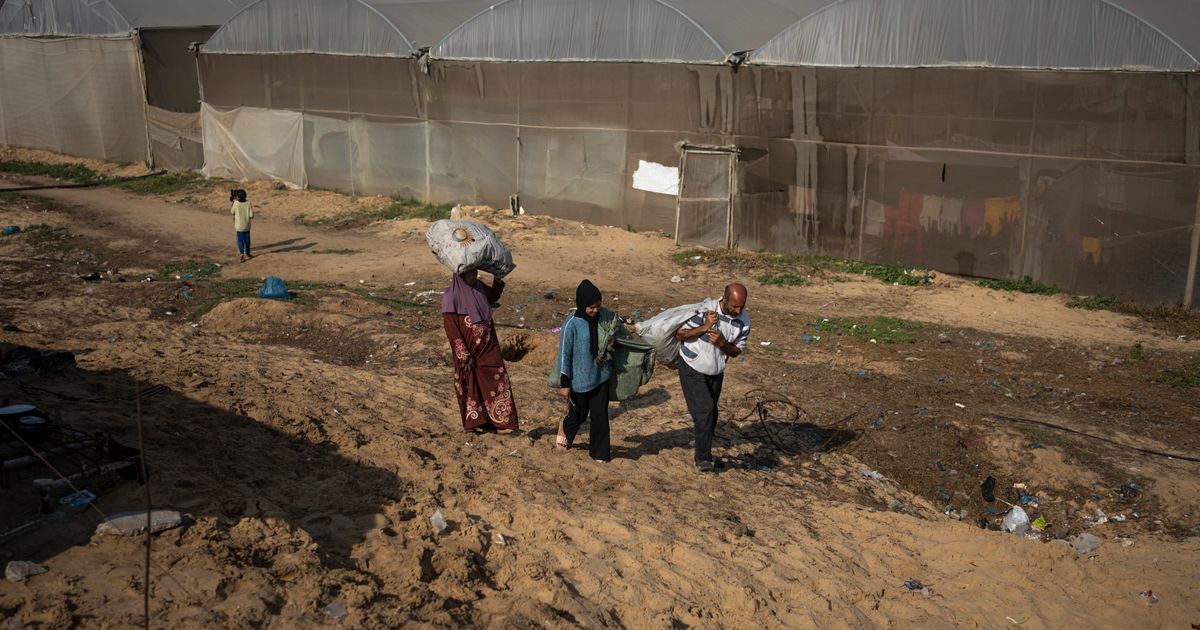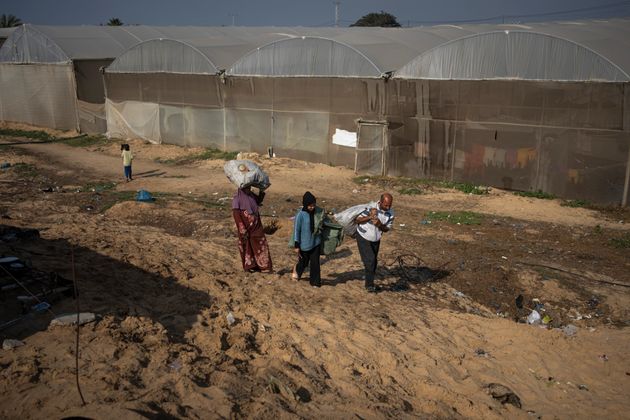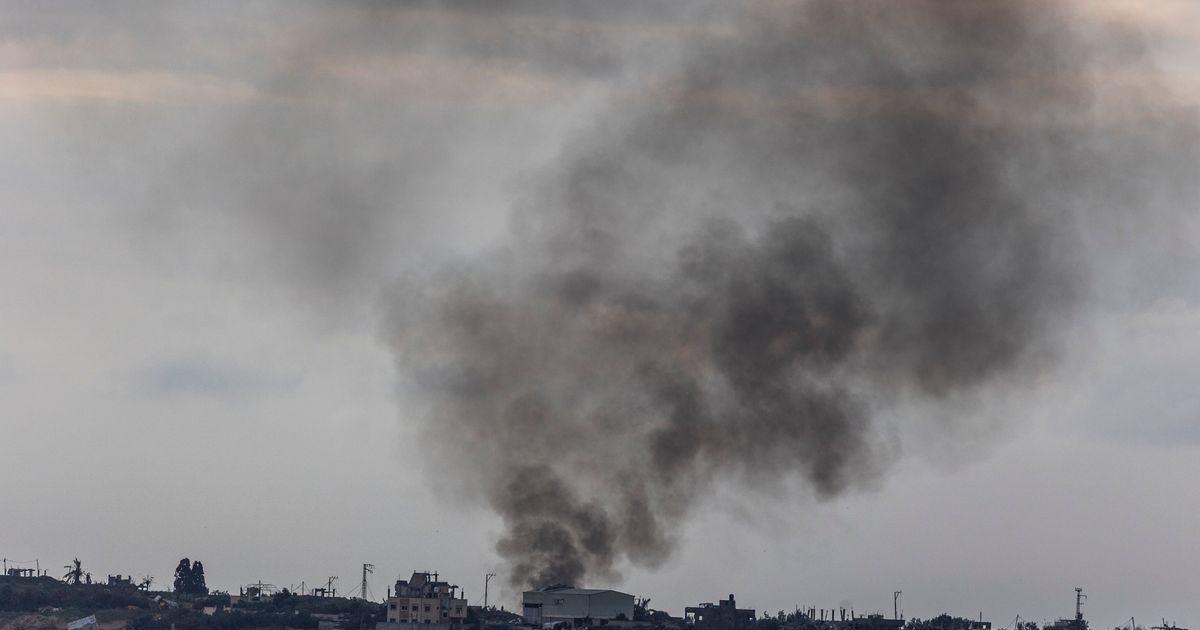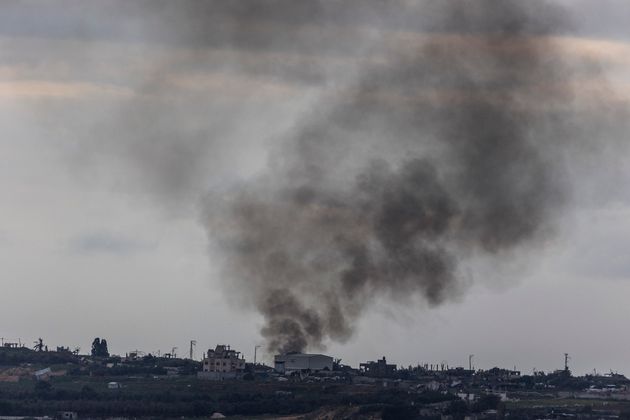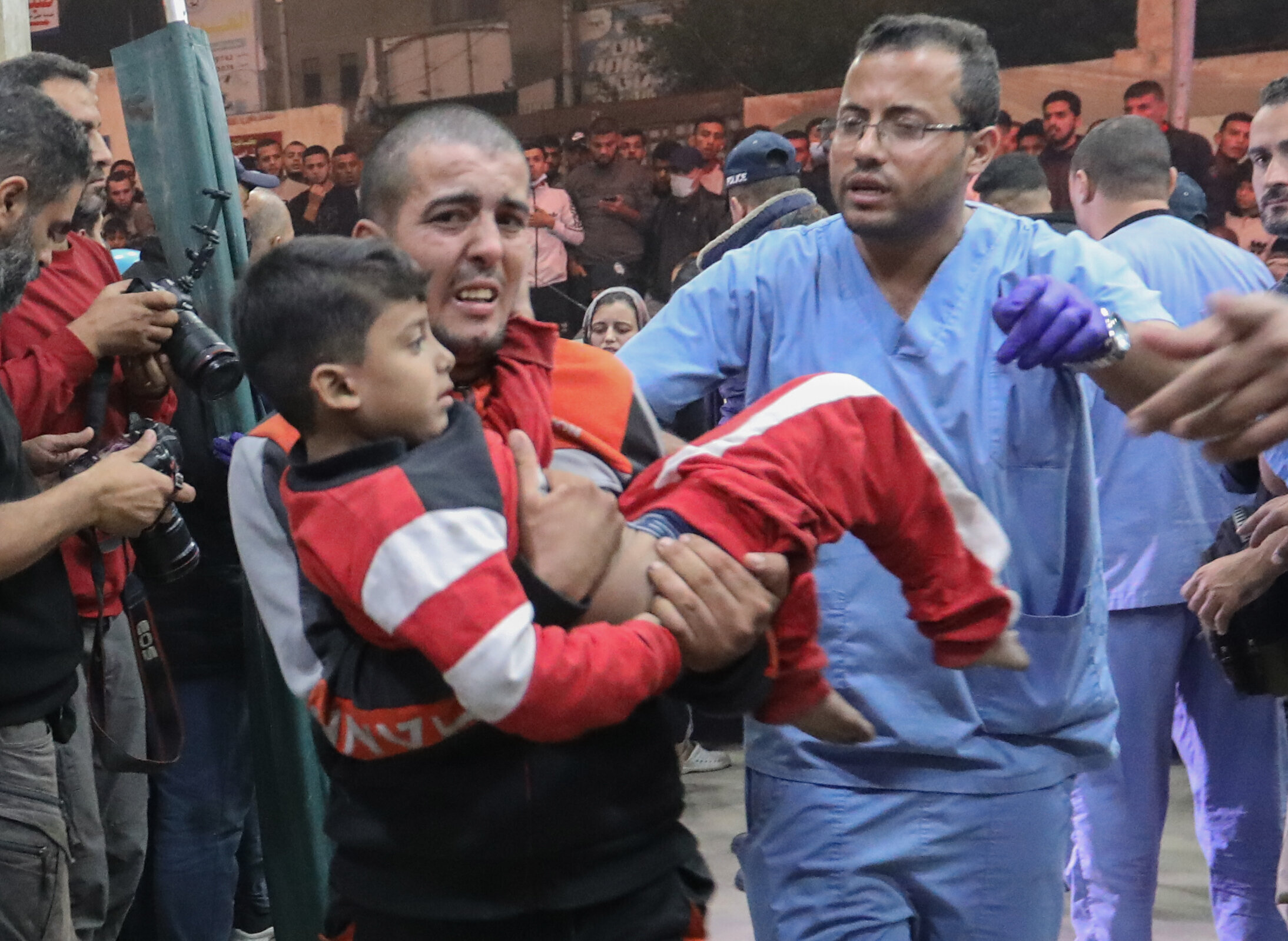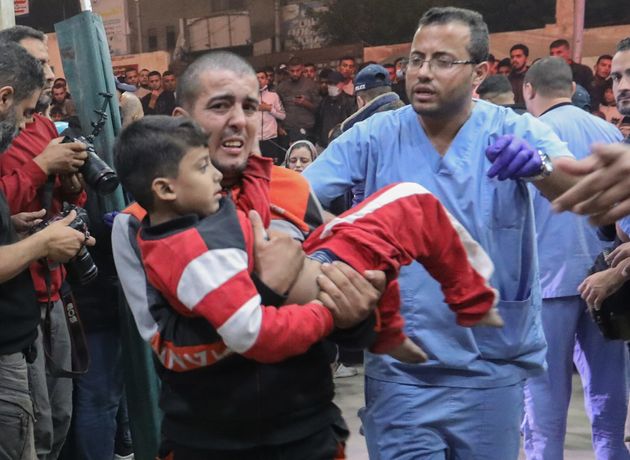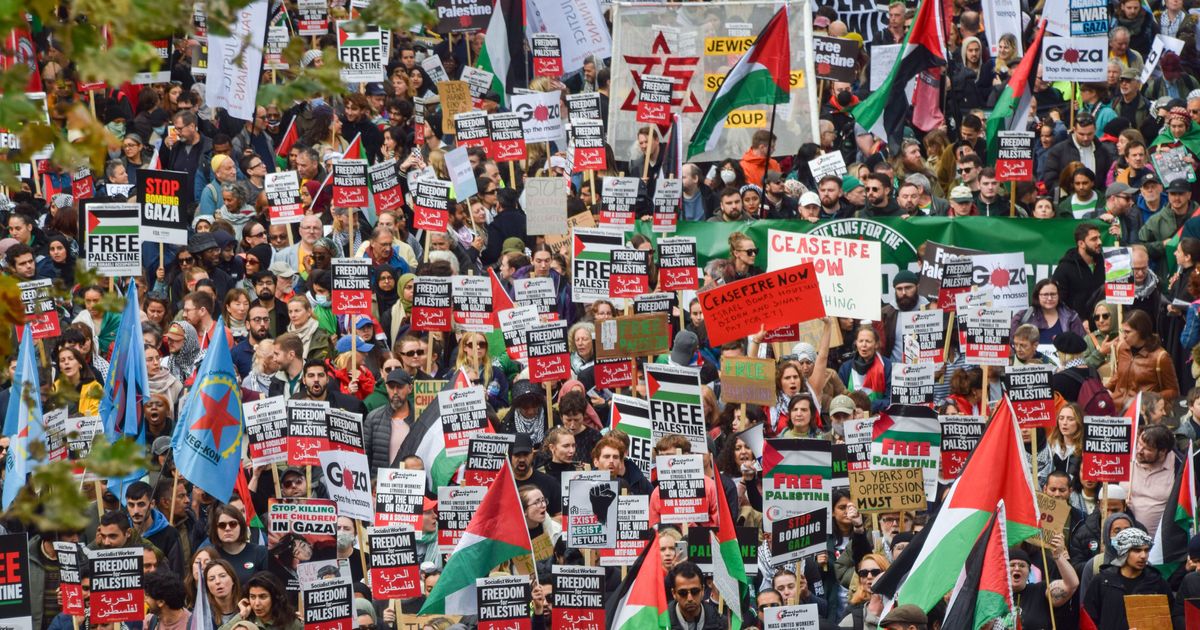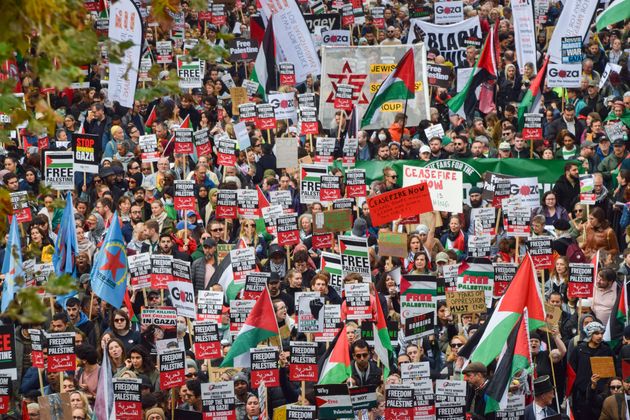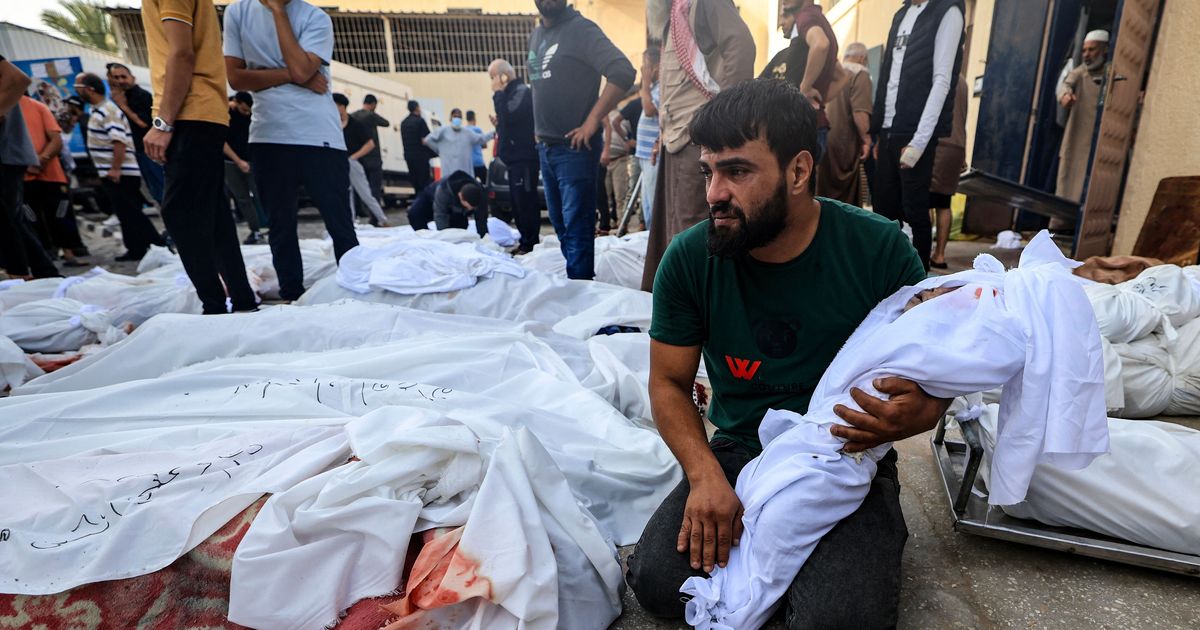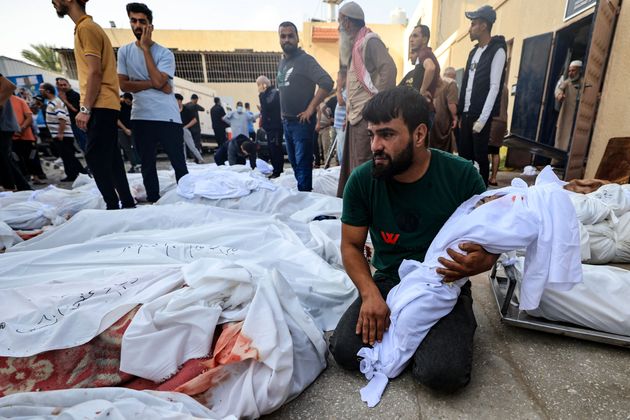As open fighting between two of the Middle East’s best-armed players worsens, more than a million Palestinian lives hang in the balance.
Israel on Thursday attacked Iran, in retaliation for an April 13 attack from Iranian drones and missiles, which was itself a retaliation for the Israeli bombing of an Iranian consulate on April 1.
Advertisement
Iran downplayed the significance of the strike, with state media saying it caused no major damage. The US, Israel’s military lifeline, did so too. Secretary of State Antony Blinken told reporters the Biden administration “has not been involved in any offensive operations” and seeks “de-escalation and [to] avoi[d] a larger conflict.”
The state-on-state strikes between Israel and Iran, a prospect that risks sparking an all-out war, are “over,” a regional government source argued to CNN after the latest Israeli strike, saying Iran was unlikely to respond. Multiple national security analysts agreed Israel’s move seemed carefully calibrated, ostensibly in line with the priorities of the US and of anxious neighbouring countries.
Still, the two countries indisputably moved closer to head-on conflict through their unprecedented tit-for-tat in recent weeks. “The US will celebrate a small success. But the spiral is still spinning downward: rules are being rewritten on the battlefield,” wrote Emile Hokayem, an analyst at the International institute for Strategic Studies, a think tank, on X.
As the potential for extremely costly miscalculation persists, questions remain open: Is this the full extent of Israel’s response to Iran? Will the two now continue their longstanding bids to weaken each other through clashes elsewhere, perhaps in already bruised Lebanon?
Advertisement
It’s hard to see how the spiral stops until another question is answered: What about Palestine?
Rafah, the town in southern Gaza where nearly 1.5 million Palestinians are sheltering, is the only section of the strip Israel has yet to invade its sweeping, hugely controversial campaign.
Israeli Prime Minister Benjamin Netanyahu says an attack on Rafah is vital to shield Israel from the Gaza-based militant group Hamas.
Washington says it cannot support that plan without a serious strategy for evacuating and helping civilians — a strategy Israel has yet to provide, the White House confirmed in a Thursday statement, after a high-level meeting between US and Israeli officials.
The Biden administration is casting its attempt to temper the Rafah operation as distinct from its bid to prevent an Israel-Iran war. But to other observers, it’s impossible to separate the two. President Joe Biden is simultaneously the only outside world leader with the power to force a change in course for Israel, and a longtime ally of Israeli leadership who may be loath to seek their restraint, particularly as the country is in active conflict with Iran.
Calling the resurgent Israeli-Palestinian conflict “the beating heart of this increasingly regional problem,” Monica Marks, a professor at New York University’s Abu Dhabi campus, told HuffPost on Friday: “The thing to watch for … is whether Netanyahu bought more wiggle room on the Biden administration’s expectation for Israel to make humanitarian plans regarding Rafah’s civilians.”
Advertisement
Israel’s actions suggest it continues to see moving on Rafah as inevitable. Sources told multiple media outlets preparations had already begun, with leaflets directing civilians to flee already printed and scheduled to be dropped on Monday, though Israeli sourced told CNN the Iran attack had caused a delay. On Monday night, Israeli defence minister Yoav Gallant held a military briefing on Rafah, and at Thursday’s US-Israeli summit, both sides agreed discussions about the offensive would continue.
The prolonged uncertainty is chilling for civilians in Rafah, which constitutes the last remotely functional section of Gaza. The vast majority of Palestinians are barred from leaving the territory for neighbouring Egypt.
Describing widespread anticipation of an Israeli ground invasion and “constant anxiety due to the ongoing airstrikes,” Ghada Alhaddad told HuffPost she has witnessed panicked civilians Rafah to try to return to other parts of Gaza, only to find little but wreckage there.
“The lingering sense of fear has left many unsure of where to go next,” said Alhaddad, who works for the charity Oxfam.
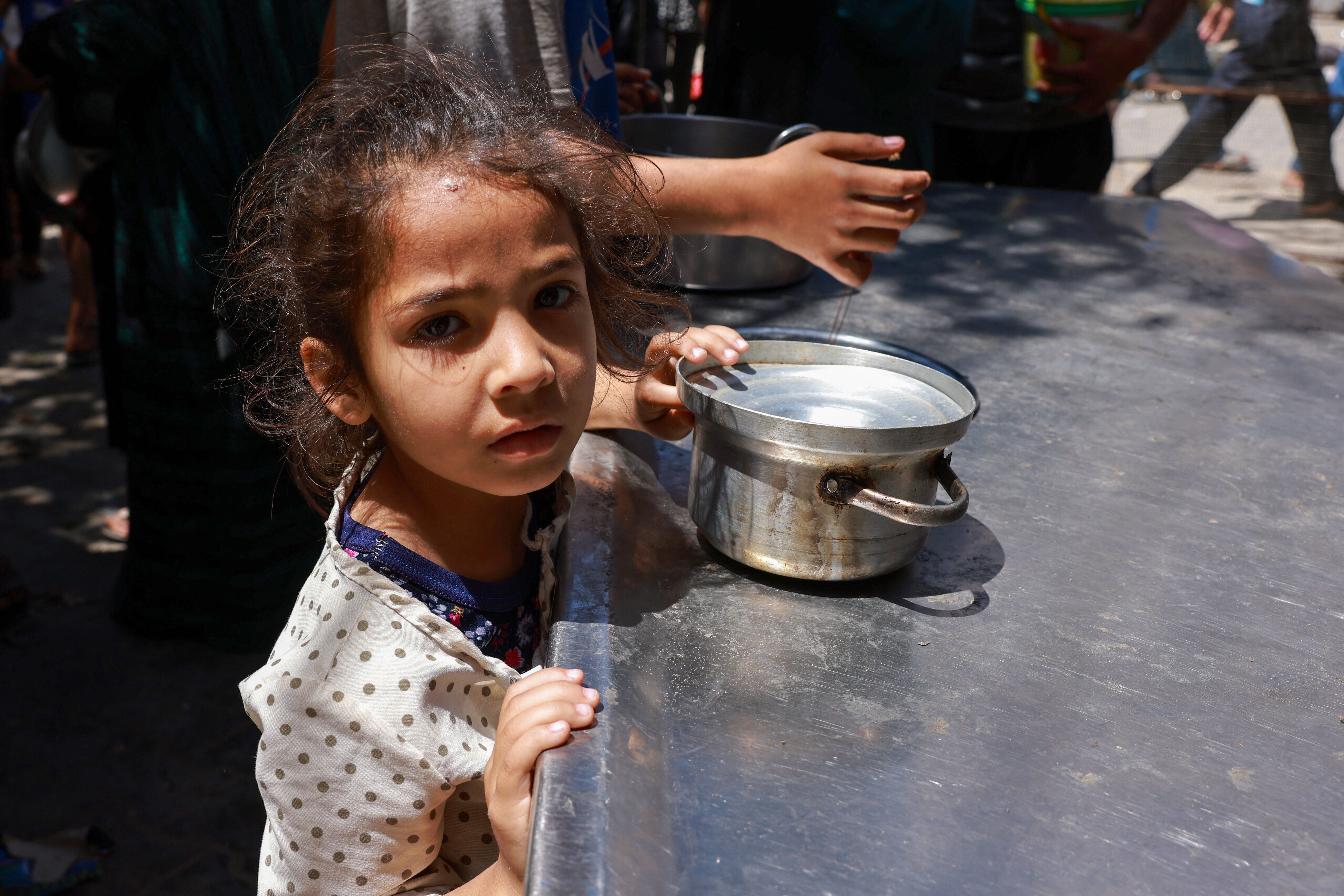
MOHAMMED ABED via Getty Images
Advertisement
As decision-makers in governments remain vague about their plans, the outside players helping Palestinians survive amid food shortages, bombardment and displacement fear the worst. Representatives of five major aid groups told HuffPost this week that even the meager support they are able to currently provide to Palestinians would plummet if Rafah is attacked, and they have yet to see either realistic plans for addressing the civilian toll of an assault or effective Israeli steps to bolster humanitarian relief for Gaza. Biden has pushed harder for increased aid since an Israeli attack killed seven relief workers on April 1.
“The conditions for us to provide an adequate humanitarian response are not there right now – let alone if the conditions become more challenging because we don’t have access to Rafah and people are put into a catastrophic situation,” said Tess Ingram, a UNICEF spokesperson who returned from a visit to Gaza on Monday.
Scott Paul of Oxfam America told HuffPost he and his colleagues fear geopolitical discussions will distract from measures to protect Palestinians, at least 34,000 of whom have been killed since Israel’s offensive began.
“There’s a widespread concern that it will be difficult to deescalate regional tensions and keep the focus on a population on the brink of famine,” Paul said. “We’re very worried that Palestinians will get the short end of the stick.”
Seeking anonymity to discuss sensitive internal deliberations, a source at a humanitarian organisation said they had little faith in the US to moderate Israel’s approach to Rafah.
Advertisement
“You just can’t look to the Biden administration for signals, because the Israelis have proven time and again that just because assurances are given to the US side doesn’t mean they’re going to be held to them,” said the source. They described aid groups as in “purgatory” as conditions for Palestinians decline and as the trajectory of the conflict remains unclear, and said Israel is deploying “a purposeful level of ambiguity.”
Spokespeople at Israel’s embassy in Washington and for the White House National Security Council did not respond to requests for comment for this story.
Known Knowns
Experts surveyed by HuffPost this week described three certainties for Israel, the Biden administration and the prospects of limiting Palestinian suffering.
Israel remains determined to pursue Hamas in Rafah beyond the attacks it has already launched on the town — most recently, an airstrike on April 18 that killed 10 members of a family, including five children.
Within Israel, there is popular dissatisfaction with Netanyahu over issues like his failing to bring home Israeli hostages captured in the Hamas-led attack on October 7, that initiated the current fighting. But worsening tensions with Iran could bolster Israelis’ feeling that security should be the country’s top priority.
Advertisement
Tackling the group’s remaining forces in Rafah is “necessary,” argued Neomi Neumann, the former head of research at the Israeli Security Agency, or Shin Bet.
“If we don’t deal with this, Hamas will manage every time to revitalise and become strong — this is the oxygen for Hamas,” said Neumann, now a visiting fellow at the Washington Institute for Near East Policy think tank, referring to Israel’s fears that Hamas will resupply itself through Gaza’s southern border region with Egypt.
Iran is a “danger,” she said, but “at the same time, we need to finish the Gaza issue.”
To “demilitarise the Gaza Strip,” Israel could use non-military means, Neumann noted, like using political agreements and technological safeguards along with Egypt and the US, and bringing in the Palestinian Authority (PA), which governs parts of the occupied West Bank.
Netanyahu and Israeli hardliners see PA rule in Gaza as unacceptable, casting the body as corrupt and Palestinian autonomy in the region as a “reward for terror,” but Neumann called it “the least bad option,” compared to Hamas or direct Israeli control of the strip.
The Biden administration has pinned its hopes on the PA and argues it can be reformed.
There’s a reason to be skeptical of how firm the US will be on the PA and related American plans for the region: its track record.
Advertisement
Throughout his career, and particularly since October 7, Biden has prioritised backing Israel. Critics say this has made him unwilling to deploy US leverage to prevent Israeli violations of human rights and other destabilising actions. But as Israel enters a new level of conflict with Iran — widely seen in American politics as an enemy country — Biden may prove especially deferential to Netanyahu.
“I think the US will have to sit harder on Israel to totally prevent any Rafah invasion,” said Marks of NYU.
The revival of hawkish talk about Tehran since its strike on Israel has already made it “that much harder to push the Israelis toward compliance” with international law “and to create pressure” on aid-related issues, argued the humanitarian organisation source.
“Can the Biden administration and Congress find a way to stop Israel’s war in Gaza and scale a humanitarian response in Gaza while enabling [Israelis] to defend themselves against Iran? Sure, if they properly staffed up and stopped half-measures, they could walk and chew gum,” the source said. “For now, it looks like the latter may take priority over the former.”
But Biden’s oft-stated resistance to a regional conflict could yet convince his team they must halt an Israeli offensive.
Advertisement
“The administration has been pretty consistently holding the line on Rafah because they know it’s a game-changer,” said Matt Duss, the executive vice president of the Center for International Policy think tank. “Biden’s policy has been to try and keep the catastrophe contained within Gaza. It’s an indefensibly callous and dangerous policy, but they’ve been consistent about it.”
Egypt, which worked with Israel to impose a years-long blockade on Gaza, has repeatedly warned Israel and the US about a Rafah assault, fearing it would push Palestinians to cross the Egyptian border en masse. Other US-aligned governments in the region, like Jordan, are facing domestic pro-Palestinian activism that has made some officials worried about the stability of their regimes.
The third reality: Too little humanitarian aid is getting to people who need it in Gaza, and the flow is increasing too slowly, despite some claims of progress.
Israeli authorities have touted an increase in how many trucks of supplies they permitted into Gaza this month through the two currently open crossings into the region, at which Israeli personnel inspect all incoming material.
On Friday, top White House Middle East official Brett McGurk told a public briefing with Jewish Americans there have been “pretty significant changes” in Israel’s treatment of aid — an assessment that was not shared by any of the aid workers HuffPost for this story.
Advertisement
“We’re interested in outputs, not inputs, which to say is the lowering of malnutrition. … We’re interested in no civilian casualties, we’re interested in no indiscriminate bombing. Those are the outputs we’re interested in, and the administration signalled they’re also interested in those things,” said Bill O’Keefe of the charity Catholic Relief Services. “We want to make sure they don’t just get caught up in inputs: there have been some increased trucks, that’s great, but there have been increased trucks before, and then that comes down.”
And on April 9, United Nations spokesperson Jens Laerke told reporters that Israel was counting half-full trucks that enter its screening sites — not the number of repacked, fully-loaded trucks that actually enter Gaza, which aid workers believe to be lower.
Meanwhile, multiple humanitarian officials told HuffPost they have no more details about plans for two additional points for supplying aid to Palestinians — the Erez land crossing and the Ashdod port — two weeks after Netanyahu’s cabinet approved their use.
The road leading from Erez to populated parts of northern Gaza requires extensive repairs before it can be used, and Israel has not greenlighted the opening of another land route, at Karni, Marks said. Meanwhile, Israel’s one currently open crossing into Gaza, Kerem Shalom, is closed on weekends. Calls for increased staffing and screening capacity there have yet to be answered, several aid workers said; neither have appeals for Israel to ease its policy of refusing to let in many aid supplies on the grounds that they’re “dual-use” and could also be used by militants.
Global attention “needs to be not on volume but types of aid and services: Can you get in tubing to do nasal feeding, the right types of food, staff to access clinics?” Marks added. “We still haven’t had that kind of results-based response, as opposed to volume-based.”
Advertisement
Israel could, for instance, make an immediate difference by restarting electricity supplies to Gaza, Paul noted.
Several humanitarian officials also described continued challenges in transporting equipment and personnel to northern Gaza, where famine is already underway.
UNICEF struggled to send fuel and food north from Rafah last week in convoys Ingram participated in, she said, as authorities delayed trucks in holding areas and directed them to a heavily congested route. Israeli officials also maintain extremely limited hours at the checkpoint separating southern Gaza from the north.
“These curfews, we run up against them all the time,” Ingram continued. Once she did reach the north on Sunday, she was appalled: “People were approaching our vehicles, fingers to the mouth. We went to Kamal Adwan hospital, which is treating malnourished children. … It is cruel that this is being inflicted on children when there is food and nutrition treatments and other aid.”
‘Undo Everything’
An Israeli attack on Rafah would force many traumatised Palestinians to abandon what little refuge they have found.
Advertisement
Abood Okal, a Palestinian American who spent weeks in Rafah with his wife and child before being permitted to leave on November 2, told HuffPost his sister Eman, her husband and their three children are now living in the space where the Okals had been staying.
They share a bathroom with 40 other people in a distant family friend’s house and can only communicate with their relatives every 3-4 days, when Eman is able to get a network signal.
Conditions in the other places Palestinians could flee to resemble those where Okal’s other sister, Asma, is staying: in a small tent in Al Mawasi, an overwhelmed coastal community where thousands of families from Rafah may move amid an Israeli offensive. Her children have contracted hepatitis A, one of many diseases that are spreading rapidly in Gaza, and she can only communicate with the outside world around once every two weeks, Okal said.
Soraya Ali of Save the Children, who visited Gaza earlier this month, told HuffPost she saw how people are living beyond Rafah in Deir Al Balah, in central Gaza. She witnessed a makeshift toilet facility shared by 200 people, dozens of people living in “unbearably hot” improvised “tents” crafted from plastic, sticks and tarpaulin and children spending their days roaming the streets seeking food and water.
In Khan Yunis, another town north of Rafah, the streets are full of unexploded bombs and Israeli attacks have destroyed infrastructure that was functioning a few months ago, said Ingram, who visited last week. “It is unrealistic to imagine that somebody could move back there and be safe,” she told HuffPost.
Advertisement
Additionally, people who have been living in Rafah and would now consider moving have already endured overcrowding and shortages of essentials for months. Oxfam’s Alhaddad mentioned one example: She has run out of heart medication for her mother.
“You’re starting already weakened,” O’Keefe said. Relocating civilians, he said, is a matter of providing not just food or shelter (which the Israeli military appears to be working on, by ordering tens of thousands of tents) but also water, sanitation and health equipment.
“We do not see how to safely provide for those people in order to allow for some sort of invasion of Rafah,” he added.
For humanitarian groups, major fighting in Rafah would make providing assistance to Palestinians nearly impossible.
It’s the “only place there is a semblance of an aid response,” Ali said. “If a ground incursion happens in Rafah, it would undo everything.”
Advertisement
Since the start of the war, aid organisations have developed storage and distribution facilities there, as well as accommodations for visiting staff serving Gaza’s population.
Between the added disruption to civilians’ lives and the worsening lack of aid supplies, full-on fighting in Rafah “would be the deadliest chapter of this conflict yet,” Ali said.

